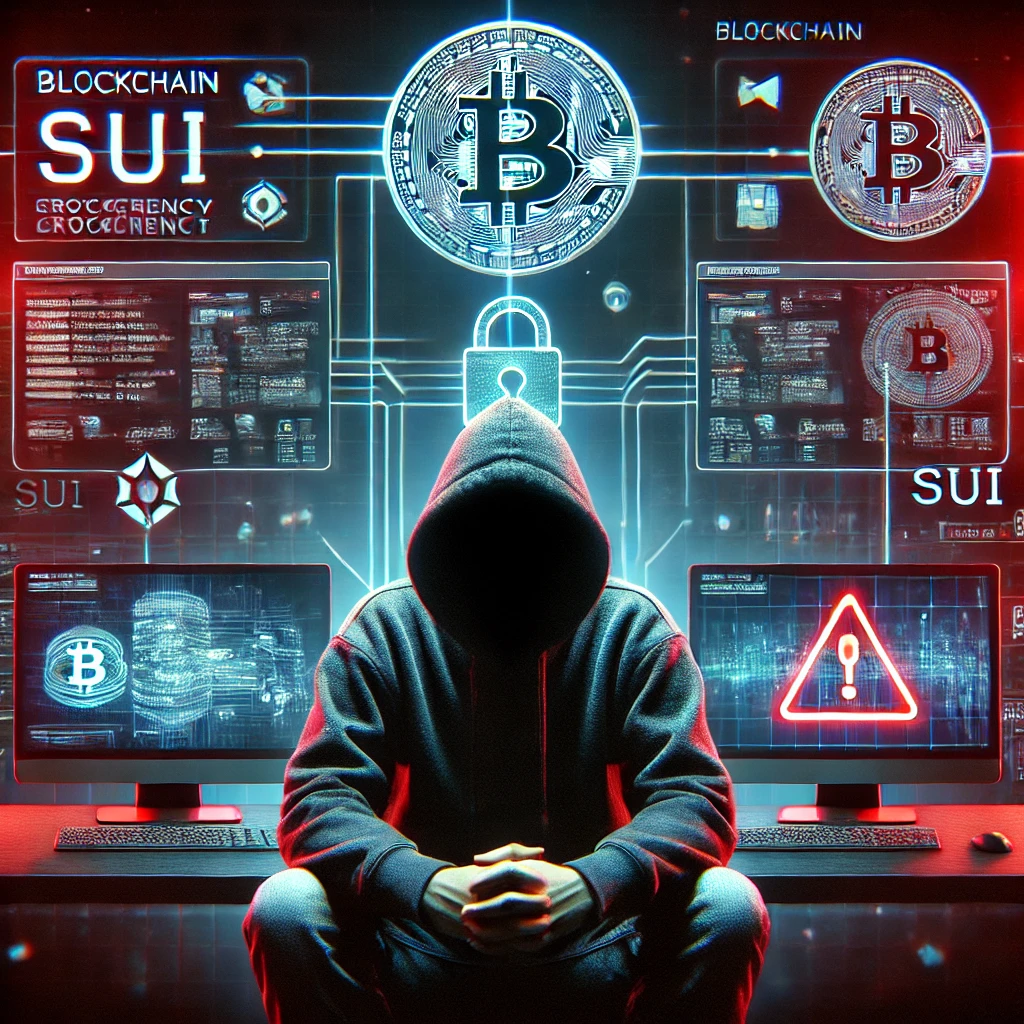The crypto industry has once again been shaken by a severe incident: the Sui hack exposed critical security flaws. An extensive attack on the SUI network resulted in the theft of over $29 million in SUI tokens. The significance of cybersecurity in the blockchain ecosystem is once again highlighted by this occurrence.
But how did this Sui hack happen? What effects does it have on the crypto community and the network? Furthermore, how can investors strengthen their defenses going forward? In this piece, we examine the history, evaluate the consequences, and offer helpful security advice.
The SUI Hack: A Comprehensive Account of What Occurred
It was discovered that the SUI network had been the victim of a significant attack on January 26, 2025. 6.27 million SUI tokens were successfully taken by the attackers and moved to the Ethereum network. There, Tornado Cash, an anonymous cryptocurrency mixing service, was used to launder the stolen money, making it challenging to track down the transactions.
ZachXBT, a prominent blockchain investigator, speculates that the attack may have started earlier. On December 12, 2024, suspicious transactions were initially noticed, suggesting that the hackers had been preparing for weeks.
What Caused the SUI Hack? Emphasis on Security Vulnerabilities
Although the precise reasons behind the attack are still being investigated, experts believe the network’s smart contract system may have flaws. The ability of attackers to repeatedly obtain unauthorized access to wallets and execute token withdrawals is especially worrisome. Some such reasons are:
- Smart contract configuration errors created openings for attackers to exploit.
- Absence of security audits, which permits exploits to remain undiscovered.
- Security flaws in wallets that allow user accounts to be compromised.
These security flaws demonstrate how crucial it is to conduct frequent audits of smart contracts and wallet security measures.
The Attack’s Repercussions: Effect on SUI and the Crypto Market
The ramifications of such a massive theft are extensive, affecting not only the SUI network but the whole cryptocurrency sector. The primary consequences consist of:
Loss of Confidence in SUI
The community’s trust in the SUI network has been severely damaged by the attack. Developers and investors are increasingly doubting the network’s true security and whether such attacks can be avoided in the future.
Uncertainty and Market Volatility
After the attack, there will probably be sharp price fluctuations in the value of the SUI token. These kinds of events frequently result in panic selling and elevated volatility, which can affect the market as a whole.
- Sui
(SUI) - Price $3.42
- Market Cap
$11.84 B

Call for Tougher Regulation
These hacks frequently put more pressure on authorities to enact more stringent laws. Long-term security may be enhanced by this, but there is also a chance that it may stifle innovation in the cryptocurrency industry.
Protective Measures: Strategies for Cryptocurrency Investors to Keep Safe
All cryptocurrency investors should take note of the SUI network attack. Investors should follow these security precautions to shield themselves from similar incidents:
Use a Hardware Wallet Instead
You should use hardware wallets rather than internet wallets to reduce the chance of theft.
Turn on Two-Factor Authentication (2FA)
Your accounts are shielded from unwanted access by an extra layer of security that is established when you enable 2FA.
Implementing Security Updates on a Regular Basis
You should always use the most recent versions of your wallets and blockchain software to fix known security flaws.
Keep an Eye on Strange Transactions
Examine your transaction history on a regular basis, and report any questionable activity right away. Greater losses can be avoided by taking prompt action.
In Conclusion, Security Should Come First
For the crypto community, the SUI network hack is yet another wake-up call. It illustrates the seriousness of security flaws in blockchain projects.
Rebuilding community trust is SUI’s current top priority. However, the episode continues to serve as a warning to the entire sector.
Sources:

